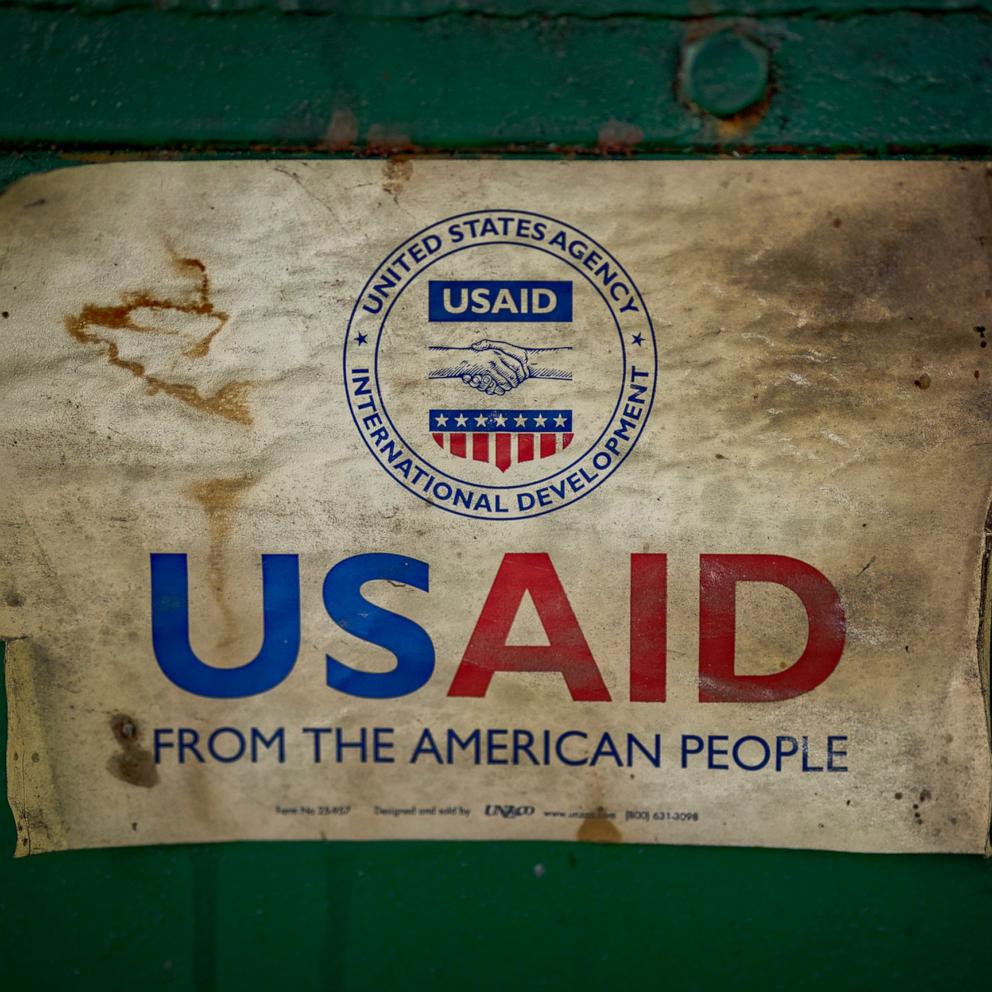State Department addresses decision to destroy 500 tons of emergency food
The State Department is defending its plans to destroy approximately 500 tons of taxpayer-funded emergency food resources, arguing that it represents only a small portion of the food aid the U.S. distributes each year.
The high-energy, nutrient-dense biscuits have been stockpiled at a Dubai warehouse for months and are set to expire this month, officials familiar with the situation confirmed to ABC News earlier this week.
In a press briefing Thursday, State Department spokesperson Tammy Bruce defended the decision to destroy the food stores, telling reporters, "If something is expired, we will destroy it. It's a matter of whether or not it's safe to distribute."
"We, as an example, distribute roughly 1 million metric tons of food aid every year, which is reflective of the American people's generosity," Bruce said, adding that "500 metric tons represents less than 1%" of the food aid the U.S. distributes annually, and that the stores in question had been stockpiled in "the event of an emergency."
Previously, on Wednesday, a State Department spokesperson told ABC News that the "expired lot was acquired under the last administration, and purchased as a contingency for needs beyond projections, resulting in the inability to deplete before expiration."
"Warehouses previously run by USAID and recently transferred to State have multiple lots of food with different expiration dates," they continued, stating that "unfortunately, this risk is part of always being ready to respond to life-saving humanitarian needs with consumable commodities in remote locations around the world."
"USAID has had to destroy commodities under previous administrations with similar circumstances -- this is not unique," the spokesperson added. "High energy biscuits are specifically meant for populations that are moving from one place to another such as in the wake of a natural disaster or fleeing from conflict. We currently have high energy biscuits in warehouses around the world, for those most in need."

The stockpiled food that expires this month first became a point of contention on Capitol Hill on Wednesday when Michael Rigas, the deputy secretary of state for management and resources, was pressed on reports that the Trump administration had plans to destroy some 500 tons of USAID emergency food aid being stored in the Middle East.
Rigas initially told Virginia Sen. Tim Kaine and the rest of the Senate Foreign Relations Committee that it was government policy not to distribute the food, which would enough to feed about 1.5 million children for a week, because it was reaching expiration.
According to officials, the State Department was able to transfer hundreds of tons of biscuits that were previously stored in the same warehouse as the biscuits now slated for destruction to the World Food Programme.
While the remaining stores might also have been transferred or distributed, officials said that contributing factors including USAID staff cuts, policies implemented by the Department of Government Efficiency, and other logistical hurdles had run out the clock.
On Thursday, Bruce denied that the biscuits were allowed to expire due to any mismanagement or inaction USAID or the State Department.
Notably, Secretary of State Marco Rubio testified to Congress in May that no food aid would be wasted, that there was no impediment to moving that aid, and that officials were simply awaiting signoff from the Department of Government Efficiency to transfer the stockpiled biscuits to the WFP for distribution before expiration.
On Wednesday, Kaine asked Rigas why the State Department had not done so before time ran out.
"I don't have an answer for that question, senator. I'm as distressed about that as you are," Rigas responded.
After Kaine pushed him further, asking whether the department's failure to transfer the food stores made him feel "ashamed," Rigas added, "Look, I don't think it's not going to say I'm ashamed or proud or indifferent to it, but I think, I think that was a failure."
He then promised to look into additional details surrounding the incident.
Officials say that the food aid was initially purchased for approximately $800,000 at the end of the Biden administration and was intended for children in Afghanistan and Pakistan.
It's not clear whether the food will be incinerated or potentially turned into animal feed.
ABC News' Melanie Schmitz contributed to this article.






